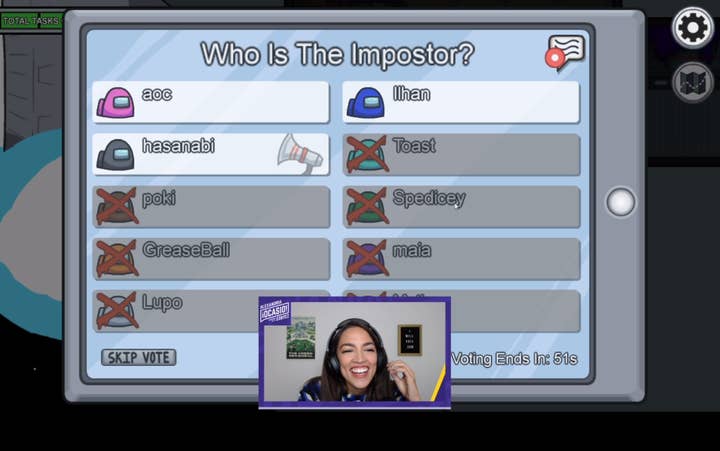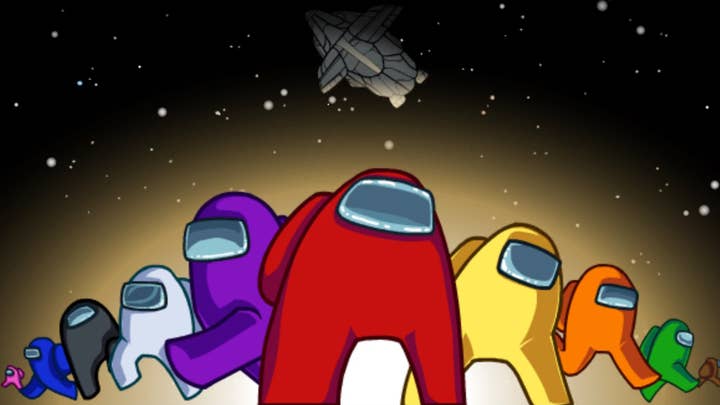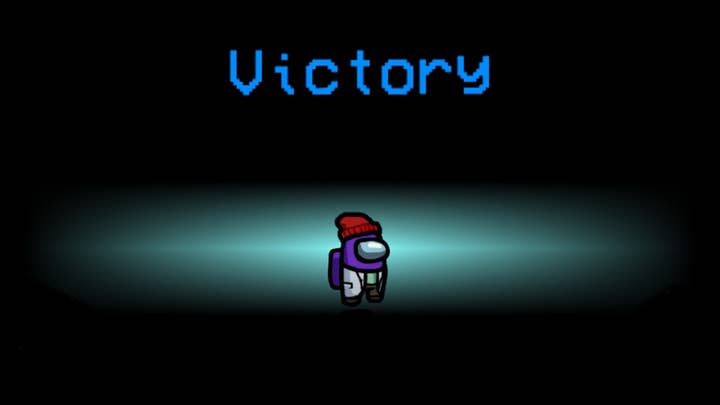AOC's Twitch stream is a milestone for games -- and for politics | Opinion
Embarrassing copycats are inevitable, but Alexandria Ocasio-Cortez opened a new frontier by showing how to reach younger voters
Not so long ago, any story involving both politicians and video games was pretty much guaranteed to leave you sitting at your desk in the classic Picard facepalm pose. While occasionally you'd get a politician popping up to wax lyrical about the economic importance of the games sector, the history of political engagement with games has tended far more towards cheap shots and moral outrage.
Figures such as California State Senator Leland Yee (later convicted of gun-running, racketeering and money laundering) and UK Member of Parliament Keith Vaz (who, not to be outdone, later resigned after a newspaper report revealed that he'd hired prostitutes and offered to buy cocaine for them) regularly circled back to campaigns against violence and immorality in video games. The only compensation for those of us forced to read about their daft proclamations and grandstanding so often throughout the 2000s was the brief blossoming of schadenfreude when their utter hypocrisy was subsequently laid bare.
The success of the stream makes it pretty much inevitable that this has opened a door that won't easily be closed again
I raise this -- and both apologise for reminding you of these gentlemen, and accept your thanks for the little smirk you just enjoyed over their respective fates -- because it's perhaps only by remembering the extremely uncomfortable relationship video games have conventionally had with politics that we can put what happened this week into its proper context. If you're a young US voter in your late teens or early 20s, popular US House Representative Alexandria Ocasio-Cortez setting up a Twitch channel and proceeding to stream herself (and fellow Representative Ilhan Omar, joined by many popular Twitch streamers) playing Among Us for an audience that peaked at almost 440,000 concurrent viewers is interesting, and maybe a bit cool to see, but streaming and video games have been a part of your world since childhood. This likely doesn't seem that unusual to you.
If, on the other hand, you're old and grey enough to remember when video games were little more than a convenient punching bag for social conservatives with some elderly voters to scare, the reversal this represents seems little short of extraordinary.

Almost 440,000 is actually lowballing the numbers a little here; add in people watching on other participants' streams and you've got somewhere north of 600,000 concurrent viewers on Twitch, watching a couple of politicians play InnerSloth's cult hit game and chat with fellow streamers. The success of the stream -- not just in terms of the raw numbers of viewers, but also the positive attention it attracted after the fact -- makes it pretty much inevitable that this has opened a door that won't easily be closed again.
This approach works for AOC and Ilhan Omar because they're not faking it
A young politician already known to have an interest in games setting a Twitch stream may seem like a natural progression, but don't discount just how many people involved in political communication and campaigning will be sitting up and taking notice this week. AOC's stream did something that politicians, especially on the left, have done a miserable job of for many years -- effectively and naturally engaging with younger (potential) voters in the online spaces they already occupy and enjoy.
There will be copycats, and a lot of them are going to be absolutely cringeworthy. This approach works for AOC and Ilhan Omar because they're not faking it -- they're at the vanguard of the generation for whom the demographic expansion and mainstream acceptance of video games wasn't a work in progress or a point of interest, but a simple lived reality. The games industry has mused to itself about that demographic shift for such a long time that sometimes I think we lose sight of the fact that for just about anyone under 30, it's a simple fact of life -- everyone in that group, regardless of gender, race or class, plays video games of some kind, to an extent that even those of us who aren't that much older can find a bit mindblowing.
AOC is part of that generation, and when she plays and chats about games it comes naturally and feels unforced -- which, crucially, meant that most of her stream was actually focused on playing the game, rather than being a political campaign event using a video game stream as window dressing. Many of those who will seek to copy this kind of approach in future are going to be utterly out of their depth; just contemplating the sheer volume of "how do you do, fellow kids" we're about to be subjected to by politicians who grossly misjudge how hard it is to fit into this environment if you haven't been soaking in it for your entire life is pretty cringeworthy by itself.
Many of those who will copy this kind of approach in future are going to be utterly out of their depth
It's pretty interesting to think about this from the political side of the fence -- which is what I do full-time these days, so this story really sits at the confluence of my own interests -- but the perspective that ought to interest the industry more is what it means for this medium that hundreds of thousands of people are tuning in to watch politicians stream video games on Twitch. It indicates the progress of the cultural and demographic shift I alluded to above, one that will only spread inexorably through demographic groups as these generations age. It also suggests a new place for video games in the national conversation, and a kind of engagement that's going to make it remarkably hard for games companies to maintain the self-conscious claims of apolitical neutrality that so many of them have been coasting on of late.
It's worth re-emphasising that AOC and Omar are not typical politicians. Both Bernie Sanders and Donald Trump also have Twitch channels, by the way, and both of those channels are pretty miserably ignored -- though obviously neither of them is hopping onto games of Among Us or Fall Guys. However, the shift that we're seeing has some pretty clear precedent that suggests where things will go from here.

Older readers will recall how odd it seemed when politicians started naming popular bands and artists, rather than "high culture" touchstones, as their favourite music in interviews back in the 1990s. These days nobody raises an eyebrow when a politician mentions their favourite band in an effort at humanising themselves, unless it's something especially incongruous -- there's a certain constituency of white conservatives who seem to have managed to become passionate Rage Against the Machine fans without ever listening to a single word of their lyrics, for example.
In the field of political communication, I think AOC's Twitch stream will eventually be seen as a milestone
Now it's video games' turn. Just as rock music took a generation to move from panic and outcry over satanic lyrics and anarchist punks to David Cameron giving Johnny Marr an apoplexy by pronouncing his love of The Smiths, games are now swept along in an inexorable societal trend towards being popular enough across a broad enough range of demographics that people in all walks of life discuss them as comfortably as we discuss books, films and music. In House of Cards, scheming politician Francis Underwood plays Xbox games to unwind at night, but it's not something he'd ever discuss openly. We're moving well beyond that now, towards an inevitable reality where politicians humanise themselves by pointing out that they play games like all the rest of us, just as in the past they've talked about their favourite music or movies in an attempt to seem more down-to-earth.
It won't happen overnight, of course. It would be fascinating to know what the demographics for AOC's Twitch stream were. I'd guess it skews a little older than most Twitch streams, since younger teens won't be terribly interested in the political aspects, but still vastly younger than the audiences for almost any other kind of political content. There are still plenty of older voters with a jaundiced view of video games, which should at least spare us the indignity of watching elderly politicos earnestly declare their love for League of Legends while holding a controller upside-down, but the direction of travel is clear. For political entrepreneurs who are specifically targeting a younger voting demographic, the lure of the community and platform that's developed around game streaming will prove impossible to resist.
With all that's happened in 2020, politically and otherwise, it's hard to imagine which of the year's events will ultimately be considered significant milestones -- but in the field of political communication, at least, I think AOC's Twitch stream will eventually be seen as such. Politicians engage with new media as they seek to engage with their voters in the places they congregate and the content they consume -- from radio to television to the internet, marking milestones along the way like the televising of the Kennedy-Nixon debate in 1960 and the Obama campaign's groundbreaking social media engagement in 2008.
There's a whole generation for whom the place they congregate and the media they consume are heavily weighted towards game streaming. This week, we saw the blueprint established for how politicians will seek to engage on that new frontier.

